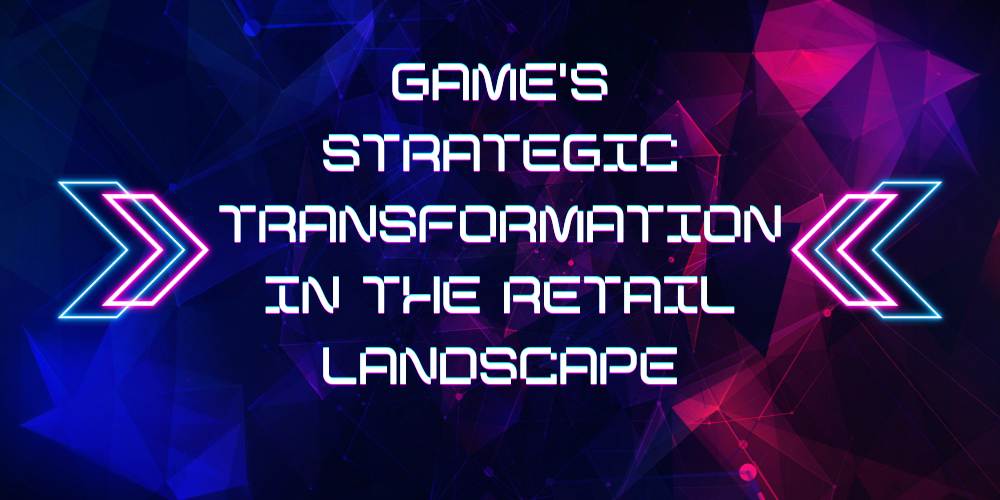Navigating the Digital Shift: GAME's Strategic Transformation in the Retail Landscape
Jul-16-2024

Recently, the UK-based retailer GAME has announced significant modifications to its operations, which include ceasing the GAME Wallet feature and stopping in-store pre-orders. GAME Wallet was a popular digital account system allowing users to add store credit and buy gift cards seamlessly. The service will come to a halt on July 18th, marking the last day funds can be added to the digital wallets. By August 21st, all accounts associated with GAME Wallet will close permanently.
This development stirred conversations among gamers and the broader retail community, as it signals a shift towards more consolidated online services. The closure is not just a minor change but rather a crucial step in GAME's evolving business strategy aimed at optimizing operations.
Shift Towards Online Pre-Orders
In conjunction with the closure of the GAME Wallet, the retailer is also halting in-store pre-order services. Moving forward, all pre-orders will have to be conducted via GAME’s online platform. This transition is clearly a push towards expanding their digital presence, aligning with the growing preference for online shopping among consumers.
It's noteworthy, however, that any pre-order due for fulfillment beyond January 31, 2025, will be refunded. While this adjustment may disrupt the shopping habits of many loyal customers, it’s a strategic move aimed at streamlining their operations and reducing overhead costs associated with physical retail spaces.
Implications for GAME’s Future
This move to close the GAME Wallet and halt in-store pre-orders might be seen as an attempt to prepare for the bigger, potentially more radical changes in the retail environment. The company is planning to phase out its trade-in and pre-owned product support, which many view as a substantial shift for GAME.
As of now, trade-ins and the resale of pre-owned games have been integral to GAME's financial structure. Eliminating these services could signal a pivot towards a more digital-centric model, potentially mirroring other successful ventures in the industry.
Why Digital Transition Seems Inevitable
Physical retailers have been struggling against the surging growth of digital storefronts. GAME's decision to stop in-store pre-orders and phase out the GAME Wallet is indicative of the mounting pressure on brick-and-mortar stores to adapt to changing consumer behavior. In today’s digital age, customers seek convenience, which online platforms effortlessly provide. A shift from physical to digital not only streamlines customer experience but also trims down operational costs for businesses.
From an economic standpoint, these changes could result in reduced expenditures on physical store maintenance and staffing. Nonetheless, there's an emotional component to consider; many gamers enjoy the tactile experience of browsing and purchasing physical games in-store, an aspect that might be missed.
Pre-Order Culture and Its Evolution
Pre-ordering has been a fundamental part of the gaming industry, allowing enthusiasts to secure their copies of upcoming releases. Traditionally, this culture thrived in physical retail environments where customers would eagerly await new releases. However, as more gamers migrate online, digital pre-orders offer exclusive bonuses and instant access upon game releases, providing irresistible perks over traditional methods.
The cessation of in-store pre-orders reflects a growing trend toward digital exclusivity. Publishers and developers often incentivize digital pre-orders with exclusive content, early access, and other digital trinkets. GAME's shift to online-only pre-orders is an acknowledgement of this evolving landscape.
Final Thoughts on GAME’s Changes
When viewing these changes, it’s essential to consider GAME's overarching strategy. The shift from physical to more digital-oriented services could position the company to better compete with purely digital retailers like Steam, Xbox Live, and PlayStation Network. This adaptation might very well shape the path for other retailers grappling with similar challenges.
While these adjustments might bring temporary inconvenience and nostalgia for traditional shopping, they could ultimately lead to a more streamlined and efficient shopping experience. The future of retail is undeniably digital, and GAME seems to be strategically positioning itself to not just survive, but excel in this new age. This transition will be worth watching as it unfolds and redefines the gaming retail landscape.






